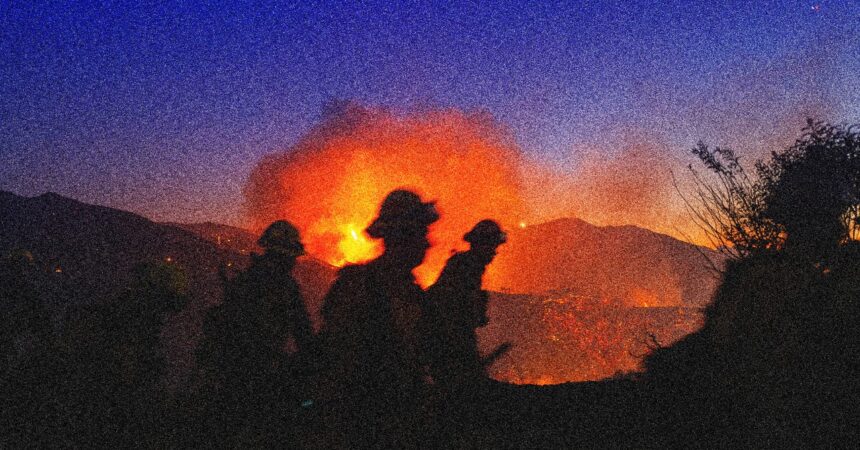The Rise of Far-Right Groups in Times of Crisis: The Case of Los Angeles Wildfires
In recent weeks, the devastating wildfires in Southern California have drawn not only first responders and volunteers but also extremist groups seeking to capitalize on crisis situations for their own agendas. Among them is Ryan Sánchez, a figure associated with the Nationalist Network, who, alongside his compatriots, has leveraged the disaster to gain followers, solicit donations, and potentially recruit new members.
The Nature of "Disaster Tourism"
As the wildfires rage through Los Angeles, the phenomenon referred to as "disaster tourism" has come under scrutiny. Far-right groups are increasingly traveling to disaster-stricken areas to create a facade of community service that masks their real intentions. As experts point out, these groups often engage in such activities to enhance their social media presence and promote their ideologies under the guise of emergency relief.
Freddy Cruz, a program manager at the Western States Center, noted, "Based on a lot of their past activities, this is probably being used as a recruitment effort." This tactic is not new; similar trends were observed following Hurricane Helene when far-right groups appeared at the scene under the pretense of providing assistance.
Ryan Sánchez and the Nationalist Network
Ryan Sánchez is no stranger to controversy. He has a history that includes participation in the now-defunct Rise Above Movement and an infamous appearance at the Conservative Political Action Conference (CPAC) where he was filmed giving a Nazi salute. Recently, he has emerged as a leader within the Nationalist Network, rallying supporters under a banner of pseudo-charitable work designed to attract new recruits.
While he claims that his group is focused on assisting local charities, their methods raise serious questions about accountability. A donation link posted on Sánchez’s social media accounts leads directly to his personal Cash App profile, complicating the transparency over where the funds are truly directed.
The Recruitment Strategy
Upon his arrival in Los Angeles, Sánchez and his group initially sought to collect goods for wildfire victims. However, they soon shifted focus to finding individuals interested in joining their ranks. On social media, he articulated a different message: “We will not be accepting any more donations tomorrow, but if you are still interested in volunteering, contact us.” This pivot from disaster assistance to recruitment showcases the opportunistic nature of their activities.
It is crucial to consider the implications of such recruitment efforts. Experts warn that the normalization of far-right presence in crisis situations can lead to the proliferation of extremist ideology among vulnerable populations affected by disasters.
The Impact of Social Media
Social media platforms play a significant role in amplifying the messages of these extremist groups. Their organized efforts to gain visibility during crises not only further their objectives but also pose a challenge in separating legitimate humanitarian efforts from those marinated in hate. Platforms like Telegram and X (formerly Twitter) allow these groups to disseminate their narratives widely, often without scrutiny.
Sánchez’s posts highlight the duality of their intentions: framing their actions as necessary for "fellow Americans," while simultaneously soliciting donations purportedly to support their cause. In doing so, they effectively tap into individuals’ sympathies and desires to help others, all while masking their true agenda.
Conclusion: Vigilance and Awareness
The situation in Los Angeles illustrates a worrying trend—the intersection of extremism and disaster response. As wildfires continue and communities seek help, the presence of opportunistic extremists can undermine genuine relief efforts. Awareness, vigilance, and the promotion of legitimate charitable organizations are crucial in ensuring that aid reaches those who need it most.
As we move forward, it is imperative for communities and social media users alike to remain critical of claims made by those like Ryan Sánchez and the Nationalist Network. Recognizing the tactics employed by far-right groups during times of crisis will better equip us to reject their harmful ideologies and support true humanitarian efforts.









